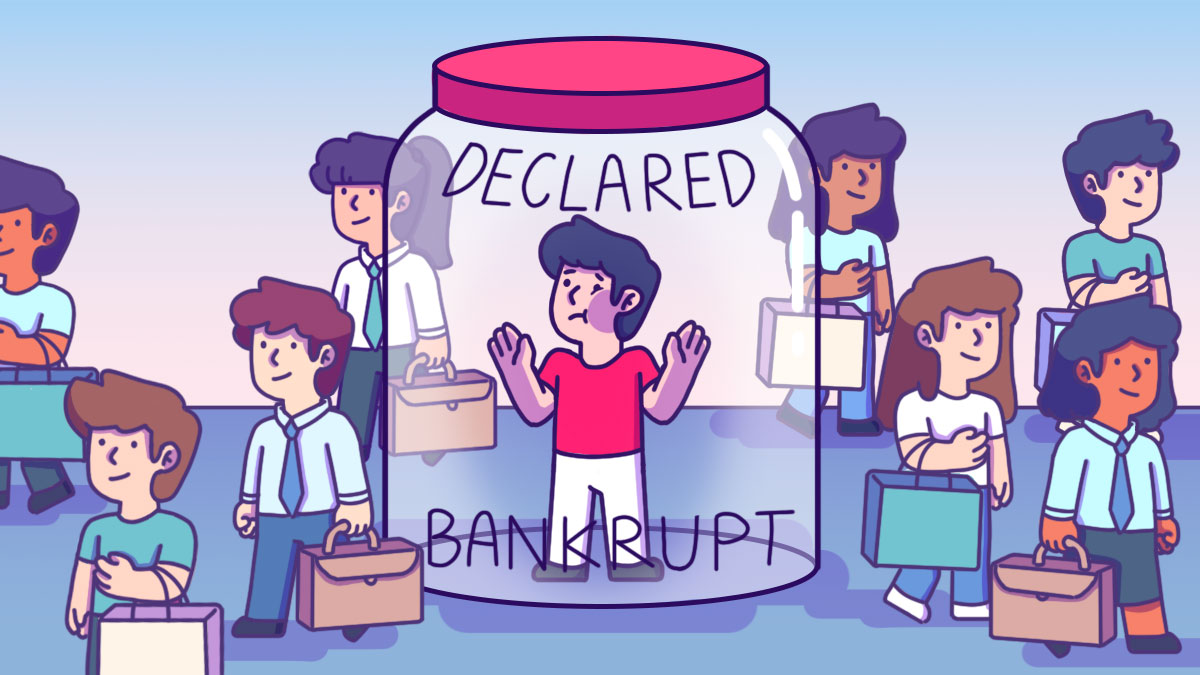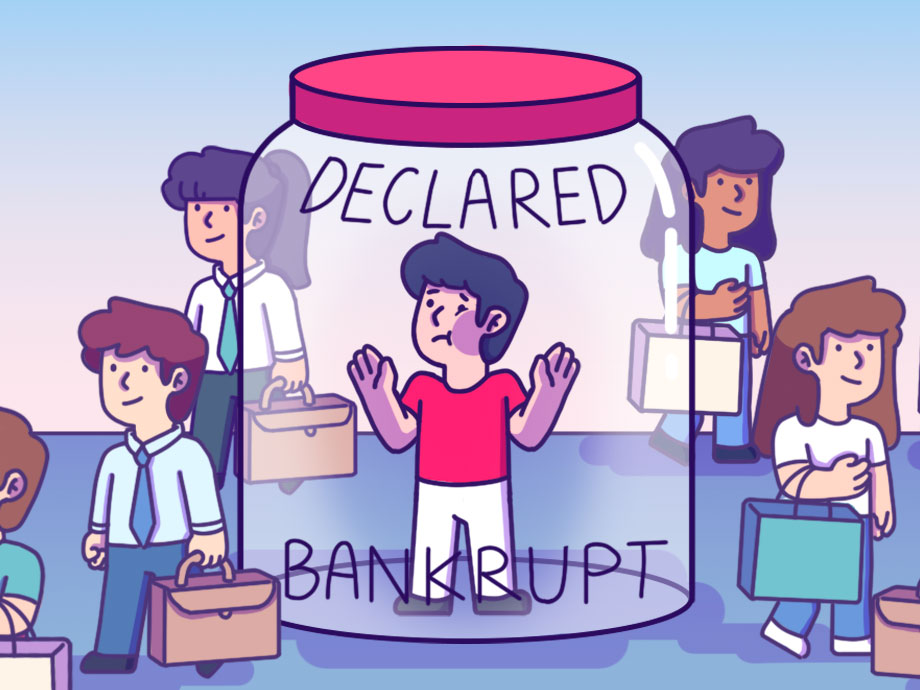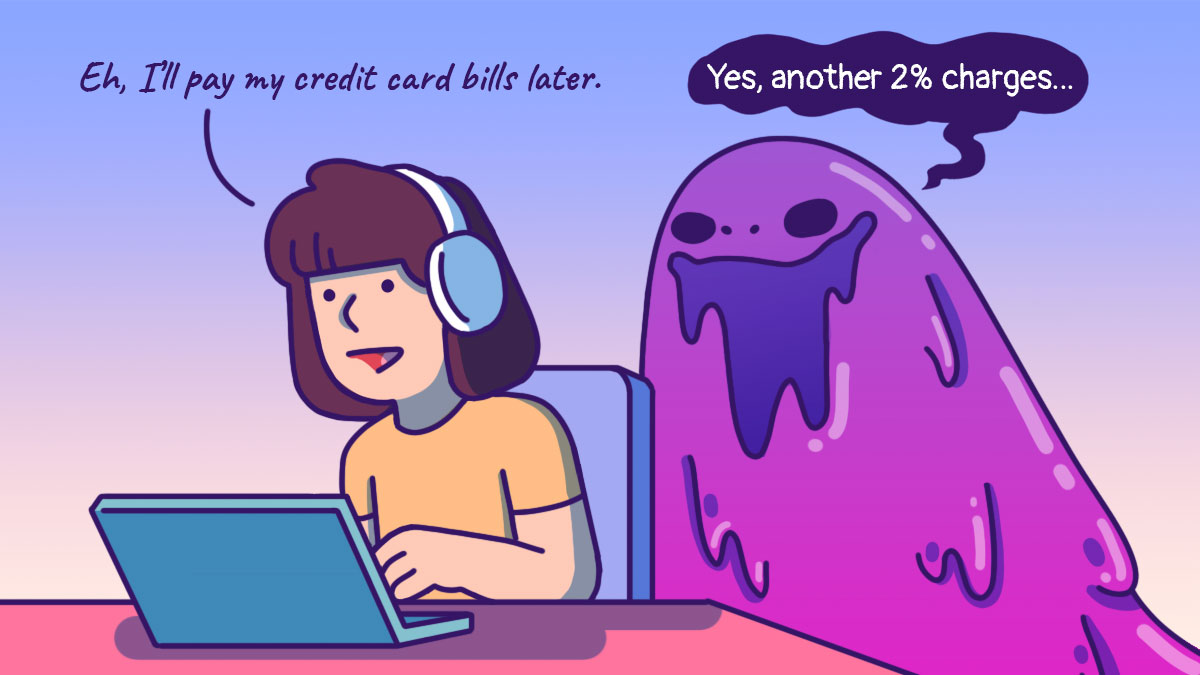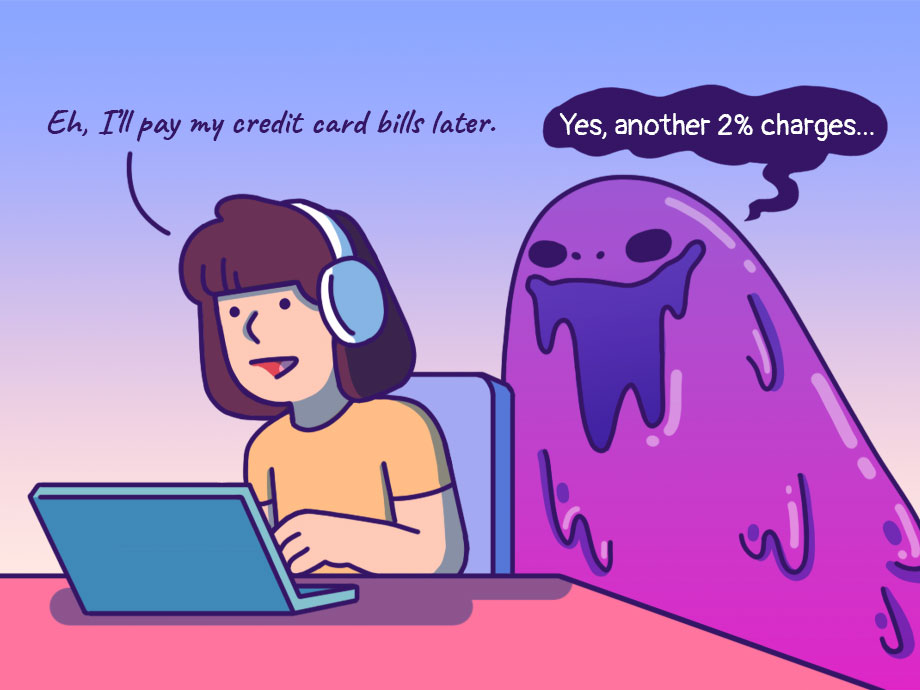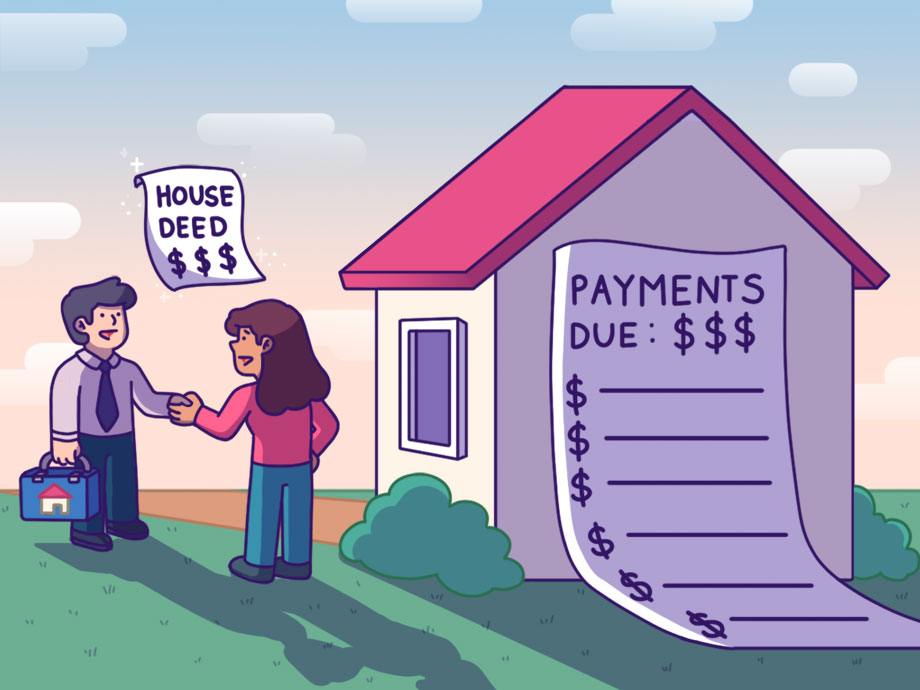Financial Planning | Personal Finance | Article
Your Finances Could Take a Hit Just by Being Someone’s Loan Guarantor!
by Ooi May Sim | 23 Jan 2024
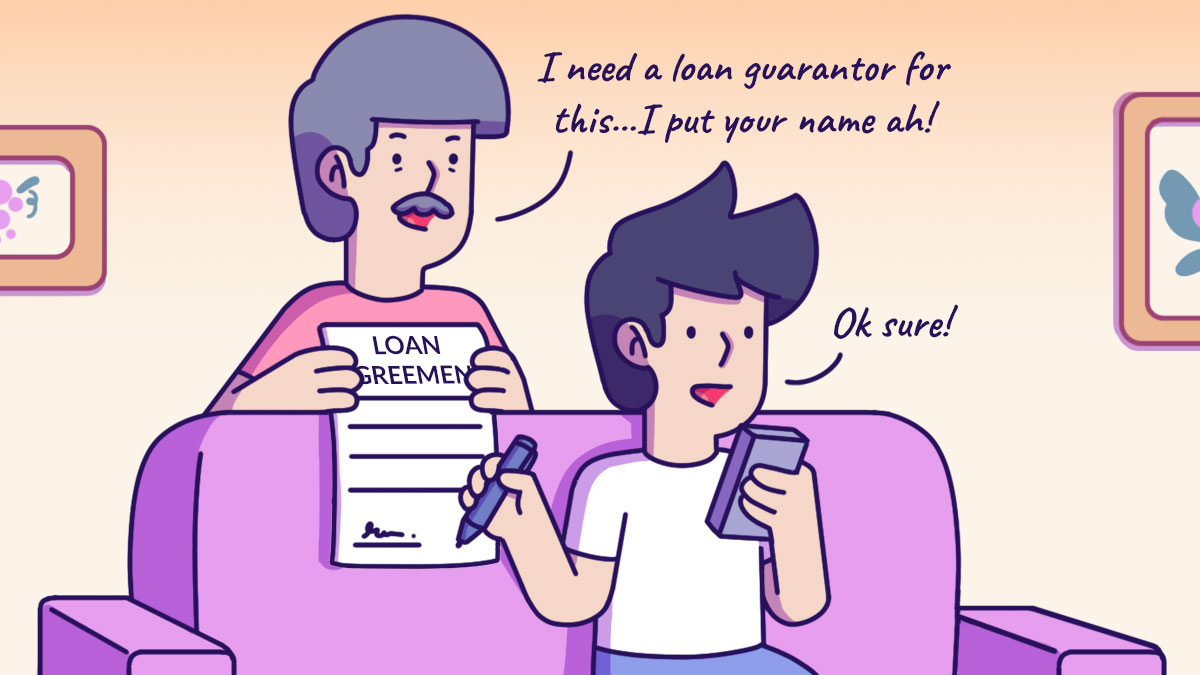
Has a friend or family member ever approached you to be their loan guarantor? Many people become loan guarantors for their family and friends without giving it much thought. After all, if you are just helping a loved one get a loan, what could possibly go wrong… right?
Unfortunately, there are many things that can.
Consumer and Borrower Settlement Association of Malaysia president, Rosland Mohd Arif, said in an article published in The Star in May that in a week, about 10 guarantors seek help from them.
Rosland shared that some of the guarantors were not even aware of the actual amount they supposedly owed. He also believes that debt that has been passed on to guarantors could lead to suicidal tendencies.
So, before agreeing to become a guarantor, you should understand what you are getting into financially and the implications that can come with it.
Consider these financial risks before signing the document
You’ll be financially liable
Being a guarantor essentially means that you are responsible for settling the outstanding debt, including all the incurred interest, if the borrower fails to repay the loan.
For example…
If a borrower takes a RM500,000 home loan with a 35-year repayment plan that has a 4% annual interest and cannot repay the loan after four years, the guarantor has to settle the outstanding balance of RM463,721.
This could deplete your savings affect your finances.
It could impact your credit score
As a guarantor, if the borrower misses payments or defaults on their payments, and you don’t or are unable to step in to pay for them, your credit history would take a hit.
You may be declared bankrupt
If both the borrower and you as the guarantor are unable to repay the loan, you are at risk of being declared bankrupt. (This is only applicable for non-social guarantors, meaning loans taken mostly for profitable purpose such as a business.)
Once that happens, your assets may be seized and used to pay off the debt.
Your finances will also be monitored by the Director General of Insolvency (DGI) and you must submit an account of all your income and expenses every six months. To ensure you don’t overspend, you won’t be allowed to spend more than RM1,000 on your credit card or obtain credit over that amount from creditors.
Also, your existing bank accounts will be deactivated, and all transactions will be barred. If you want to activate a bank account or open a new one, you must get permission from the DGI to do so.
There will also be restrictions on employment – you cannot work in certain professions and are not allowed to own a business.
You will also be barred from leaving the country.
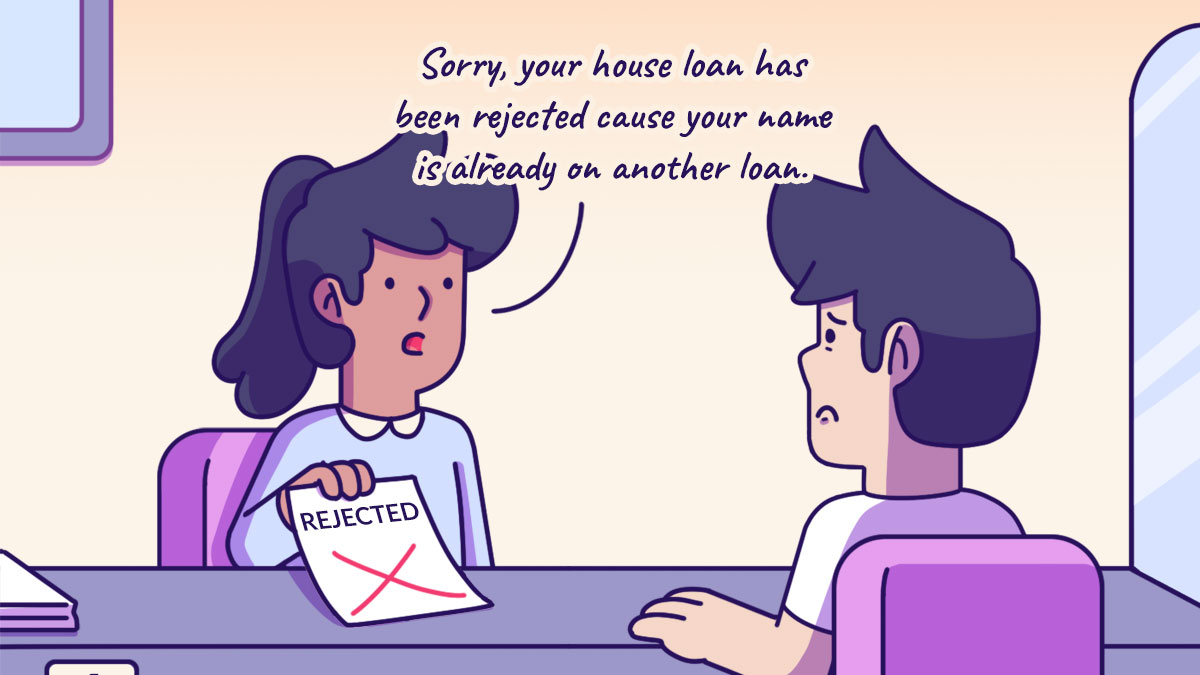
You may have trouble getting a loan in the future
Being a guarantor could affect your chances of getting a loan of your own. As your name is already on the guaranteed loan, the bank may feel that you will be unable to finance another loan at the same time.
Banks use the debt-to-income ratio, which is the percentage of your gross monthly income that is used to repay debt, to determine your borrowing risk.
For example…
You are the guarantor for a RM500,000 home loan that has a 4% interest, and a 35-year tenure. The monthly instalment payment is RM2,214.
If you want to get the same loan for yourself, you have to pay the monthly instalment of RM2,214.
If your monthly salary is RM5,000, your debt-to-income ratio would be 88.6%, which means you would be spending that percentage of your monthly income just on repaying debt.
Calculations:
Debt to income ratio = [total monthly debt / gross monthly income] x 100
= [(RM2,214 + RM2,214) / RM5,000] x 100
= 88.6%
Even if the borrower pays their instalments diligently, the bank has to ensure that the guarantor is able to repay the loan should the borrower fail to do so. So, they will take into account the instalments for the loan that you are the guarantor for and might not approve your loan if your debt-service-ratio is too high.
Related
Steps you can take to avoid such situations
Read every word of the contract
Many guarantors just skim through contracts without reading or understanding it. You should read the agreement document word for word before signing it. Analyse every clause in the contract, such as the loan amount, and interest rate.
Also, never sign a blank document or one that has not been filled.
Seek legal advice
If you are unable to understand the legal terminology in the contract, see legal advice. A lawyer would also be able to walk you through your rights as a guarantor.
Access your financial status
Wanting to help a loved one is a noble gesture, but you should also think about whether you are capable of repaying the amount that is loaned, as you will need to if the borrower defaults.
Find out about the borrower’s financial situation
Talk to the borrower and find out if they are capable of repaying the loan, and how they plan to do it. Then ask yourself if you are confident with their plan and their ability to repay the loan.
Reason(s) a guarantor was needed
Banks generally require a guarantor if an applicant doesn’t meet the approval criteria for a loan, or if they are categorised as high-risk.
For example, if the borrower just started working and has never taken a loan or doesn’t own a credit card, he/she may not have a credit history. So, a guarantor comes in to boost the applicant’s credit rating or risk factor. The guarantor essentially acts as a safety net in case the borrower defaults.
However, if the bank required a guarantor because the borrower has a poor credit rating due to poor repayment habits – the borrower constantly maxes out their credit card and only pays the minimum amount every month, this is cause for concern.
Related
Weigh all the facts before making a decision
While you might want to help your loved one secure a loan, it is crucial for you to consider the potential financial risks and implications of being a loan guarantor.
Have a thorough understanding of all the clauses in the agreement and think about the borrower’s and your ability to repay the loan. And if you have concerns, seek legal advice.
However, if you are not comfortable with being a guarantor after weighing all the facts, don’t feel pressured to sign the document. This way, your finances will not be affected by someone else’s debt obligations.





